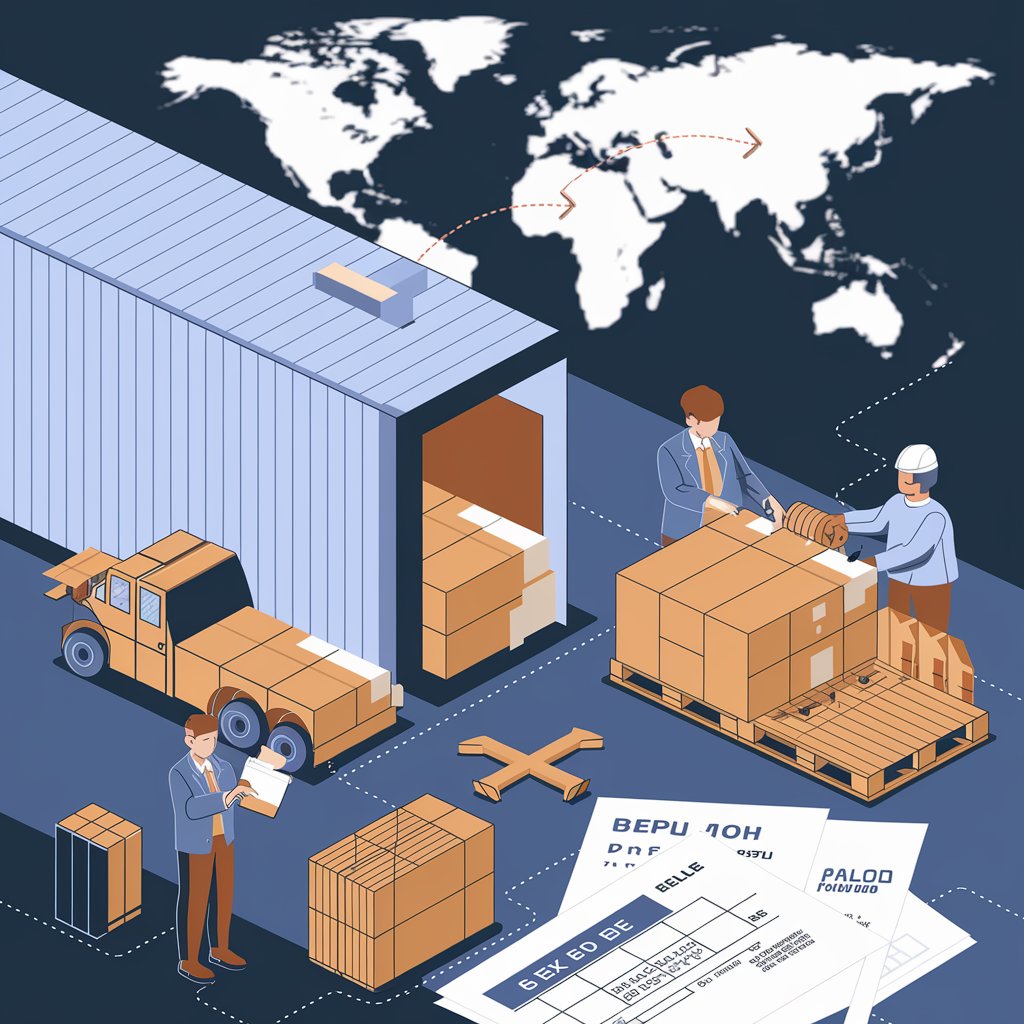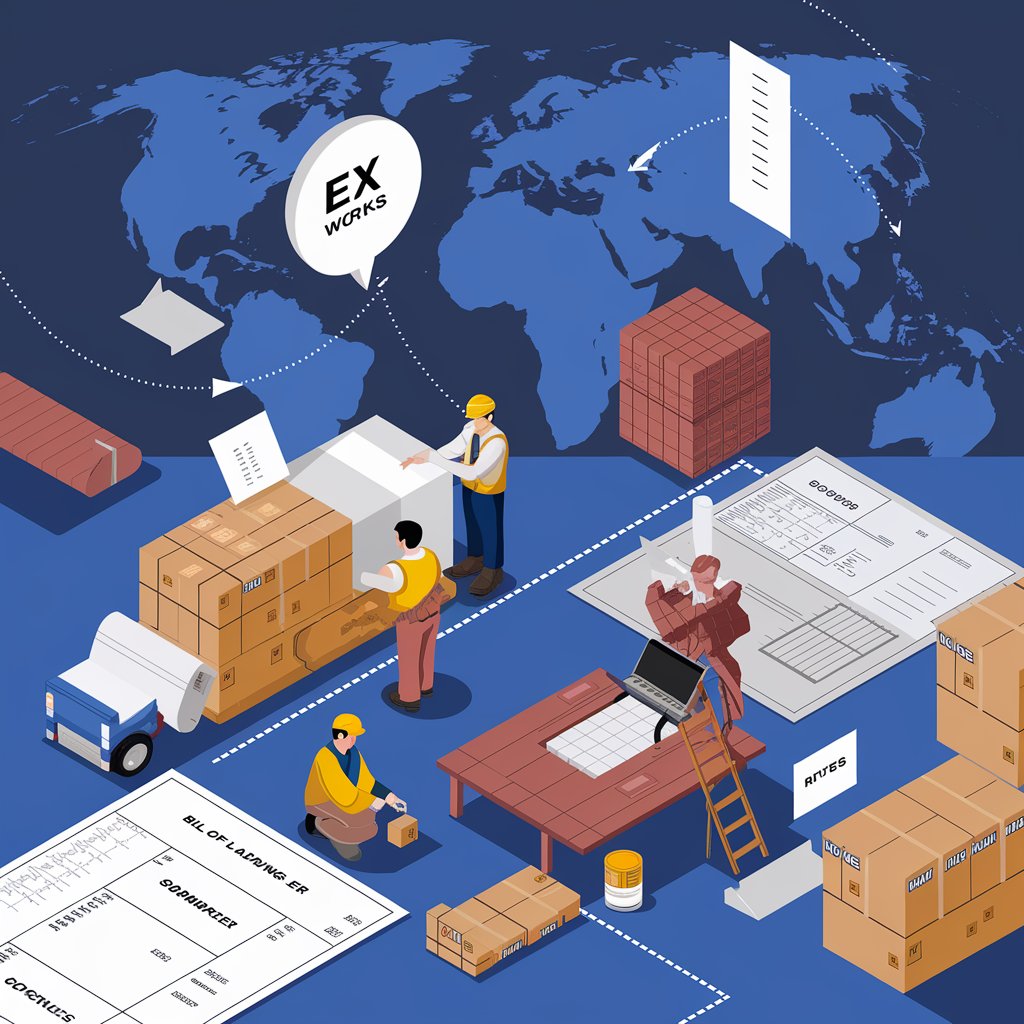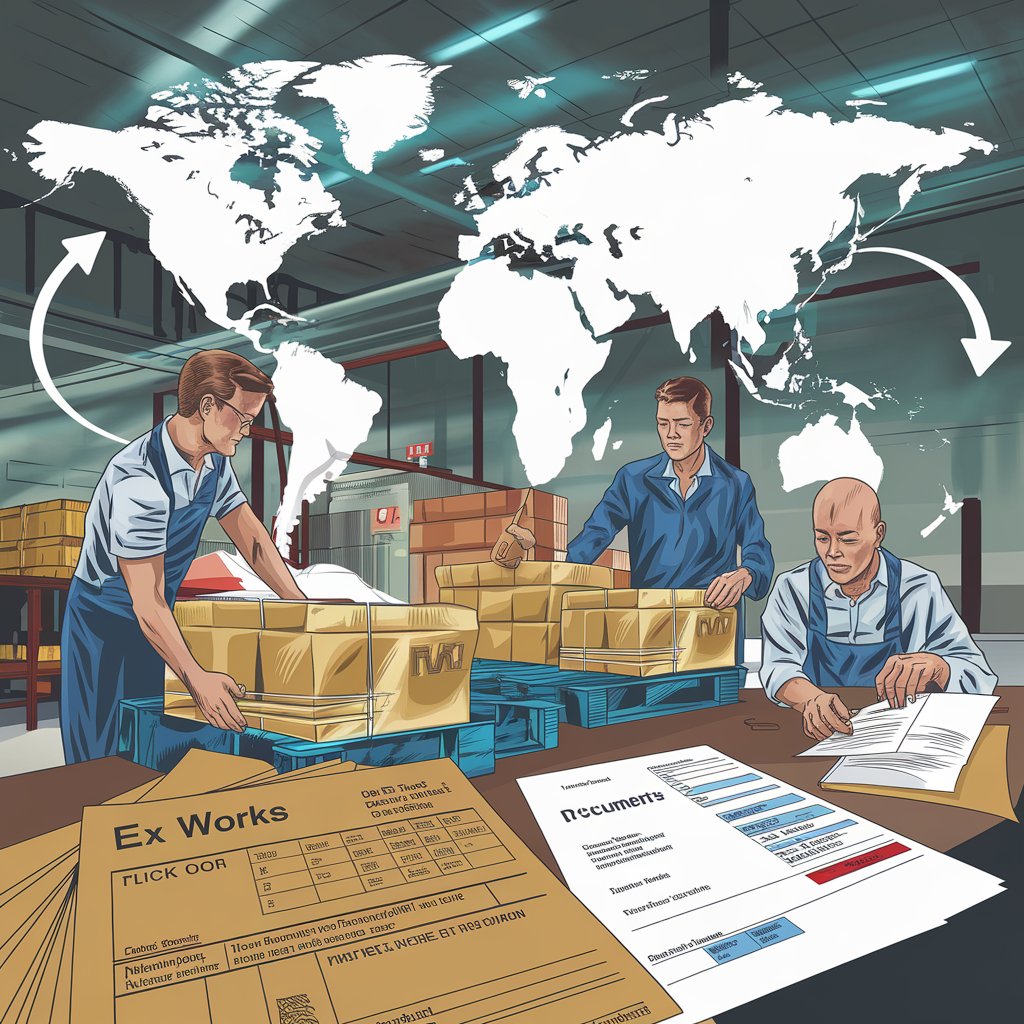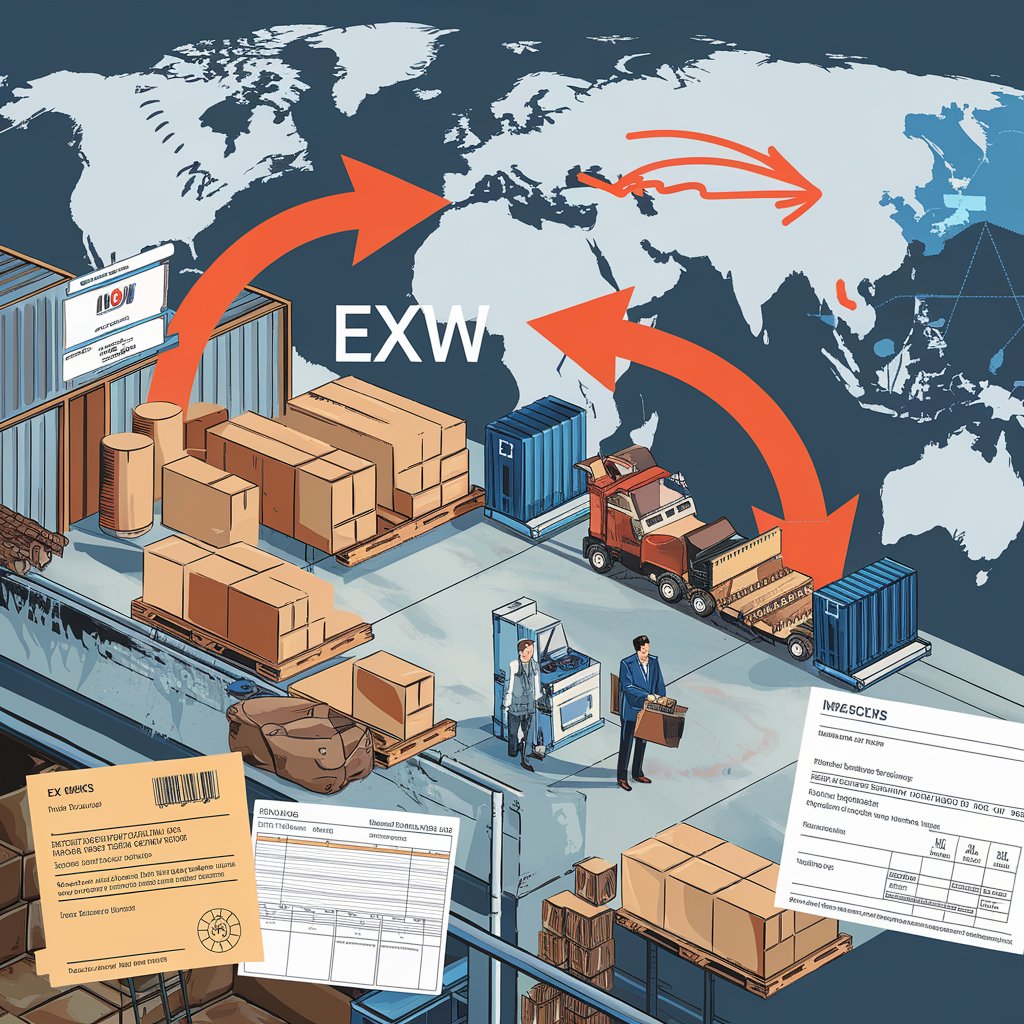What Is Ex Works and Why Does It Matter?
This article will explain Ex Works in detail, exploring its key features, practical uses, and why it matters for businesses involved in global commerce.

What Is Ex Works (EXW)?
Ex Works is an Incoterm where the seller’s responsibility is limited to making the goods available for pickup at their premises or another named location (such as a warehouse or factory). The buyer assumes responsibility for all costs and risks associated with transporting the goods from that point onward, including export duties, transportation, and insurance.
Key Aspects of Ex Works:
- Seller’s Responsibility:
The seller’s responsibility ends when the goods are made available for pickup. They are not responsible for transportation costs, export duties, or insurance. - Buyer’s Responsibility:
The buyer assumes full responsibility for all transportation costs, risk, customs clearance, and import duties. They must arrange for the shipment to the final destination. - Delivery Location:
The goods must be made available at a specified location, usually at the seller’s premises, but this could also be a warehouse, factory, or another point of departure agreed upon by both parties.

Key Features of Ex Works
- Minimal Seller Responsibility:
Ex Works places the least responsibility on the seller compared to other Incoterms. The seller’s only obligation is to make the goods available at the agreed location, properly packaged and ready for transportation. - Buyer’s Full Control:
The buyer has full control over the shipment and can choose their carrier, insurance, and transportation route. However, this also means that the buyer assumes all risks once the goods are made available for pickup. - Cost Implications:
Since the seller is responsible for minimal costs under Ex Works, the buyer may face higher upfront expenses. This includes arranging the export procedure, paying for freight, and covering insurance. - Flexibility in Shipment:
One of the benefits of Ex Works is the flexibility it offers to the buyer. The buyer can negotiate the best deals with carriers, choose a preferred shipping method, and manage the entire transportation process according to their preferences.
Practical Uses of Ex Works for Businesses
- For Sellers
Sellers often choose Ex Works to minimize their responsibility in the shipping process. By using EXW, they do not have to worry about logistics, insurance, or customs procedures. This allows sellers to focus on manufacturing and making goods available to buyers, which can be beneficial for companies with limited resources or those operating in multiple countries.
Example: A manufacturer in Europe selling products to an importer in Asia may prefer EXW because it allows them to focus solely on production while the buyer handles the transportation and import processes. - For Buyers
Buyers have more control with Ex Works, but they also assume the risk and responsibility of managing the shipment. While this gives the buyer flexibility to choose the best shipping and insurance options, they must also be knowledgeable about international logistics and customs processes to avoid unexpected costs or delays.
Example: An importer buying goods from a manufacturer in another country must arrange for freight, customs clearance, and delivery. This gives them the flexibility to choose their shipping methods and carriers but requires them to bear the associated costs and risks. - For Freight Forwarders
Freight forwarders play a key role in Ex Works transactions as they help buyers manage the logistics of transporting goods. With Ex Works, the freight forwarder assists in coordinating the transportation, export clearance, and sometimes even the insurance, depending on the terms of the agreement with the buyer. - For Supply Chain Managers
Supply chain managers need to consider the implications of Ex Works in their logistics strategy. Because Ex Works shifts the responsibility to the buyer, it may impact the supply chain’s efficiency. Supply chain professionals need to plan for the logistics, timing, and associated costs in advance to ensure that the process runs smoothly.

Advantages of Ex Works
- Lower Costs for the Seller
Ex Works is beneficial for sellers as it requires them to handle minimal logistical responsibility. Since the seller does not need to manage shipping, customs, or insurance, their costs are typically lower. - Flexibility for the Buyer
The buyer has full control over the transportation process, which allows them to choose preferred carriers, manage freight forwarding, and negotiate better rates for shipping. - Simplified Transactions for Sellers
Sellers can benefit from simplified transactions under Ex Works, as they do not need to be involved in the complexities of shipping and customs processes. This can streamline operations, especially for businesses with limited experience in international trade.

Challenges of Ex Works
- Buyer’s Responsibility for All Risks
While Ex Works offers flexibility for buyers, it also means that they assume all risks once the goods are made available. This includes the potential for damage during transport, delays, and the possibility of higher-than-expected shipping costs. - Increased Complexity for the Buyer
Ex Works can be complex for buyers who are not experienced in international trade. Arranging transportation, customs clearance, and insurance adds multiple steps and complexities, which could lead to delays or misunderstandings. - Coordination Challenges
Buyers must coordinate the entire shipping process, including scheduling, picking up goods, and ensuring timely customs clearance. Failure to properly manage any of these steps can result in costly delays or fines.
How to Manage Ex Works Transactions Effectively
- Clear Communication
Clear communication between the buyer and seller is crucial when using Ex Works. Both parties need to agree on the exact location for goods to be made available, timelines, and any other details regarding the transfer of responsibility. - Choosing the Right Freight Forwarder
Buyers should work with reliable freight forwarders who are familiar with the Ex Works process and can assist with the logistical aspects of transporting goods. Freight forwarders can help coordinate shipments, arrange customs clearance, and provide valuable advice. - Accurate Documentation
Both parties must ensure that all the necessary documents (such as the Bill of Lading, commercial invoice, and export declaration) are accurately prepared and exchanged. This documentation is crucial for smooth customs clearance and the efficient transfer of goods. - Insurance Considerations
Buyers should arrange for insurance to cover potential risks during transport. Since the buyer assumes responsibility for all risks once the goods are available for pickup, ensuring adequate insurance coverage is vital.
Why Ex Works Matters for Global Business
Ex Works is one of the most widely used Incoterms because it allows flexibility and cost efficiency for both buyers and sellers. While it places more responsibility on the buyer, it also offers them the ability to control the shipping process and make decisions based on their preferences.
For sellers, Ex Works is a straightforward option that minimizes logistical involvement, allowing them to focus on the core aspects of production and sales. However, buyers must be prepared to manage all aspects of the shipment, including transportation, customs clearance, and risk management.
Key Takeaway: Ex Works is a valuable Incoterm for businesses looking for flexibility in international trade, but it requires careful management and clear communication to ensure a smooth transaction.
Conclusion
Ex Works (EXW) is a widely used Incoterm that offers a simple framework for international transactions, with the seller making goods available at their premises and the buyer handling all subsequent transportation and risk. While it provides flexibility for buyers and reduces responsibility for sellers, it also requires careful coordination and knowledge of international logistics. Understanding the key features and implications of Ex Works can help businesses navigate the complexities of global trade more effectively.
